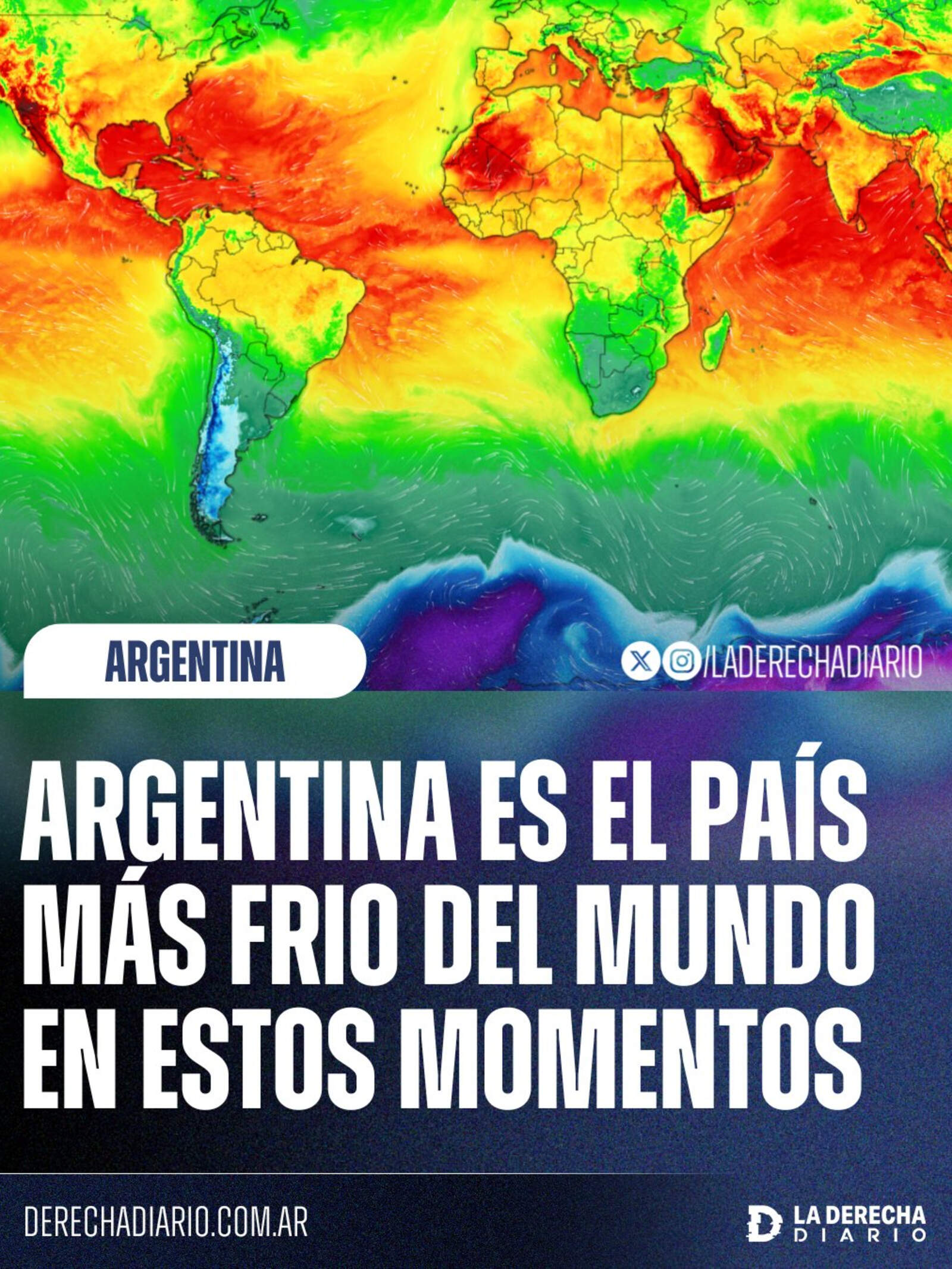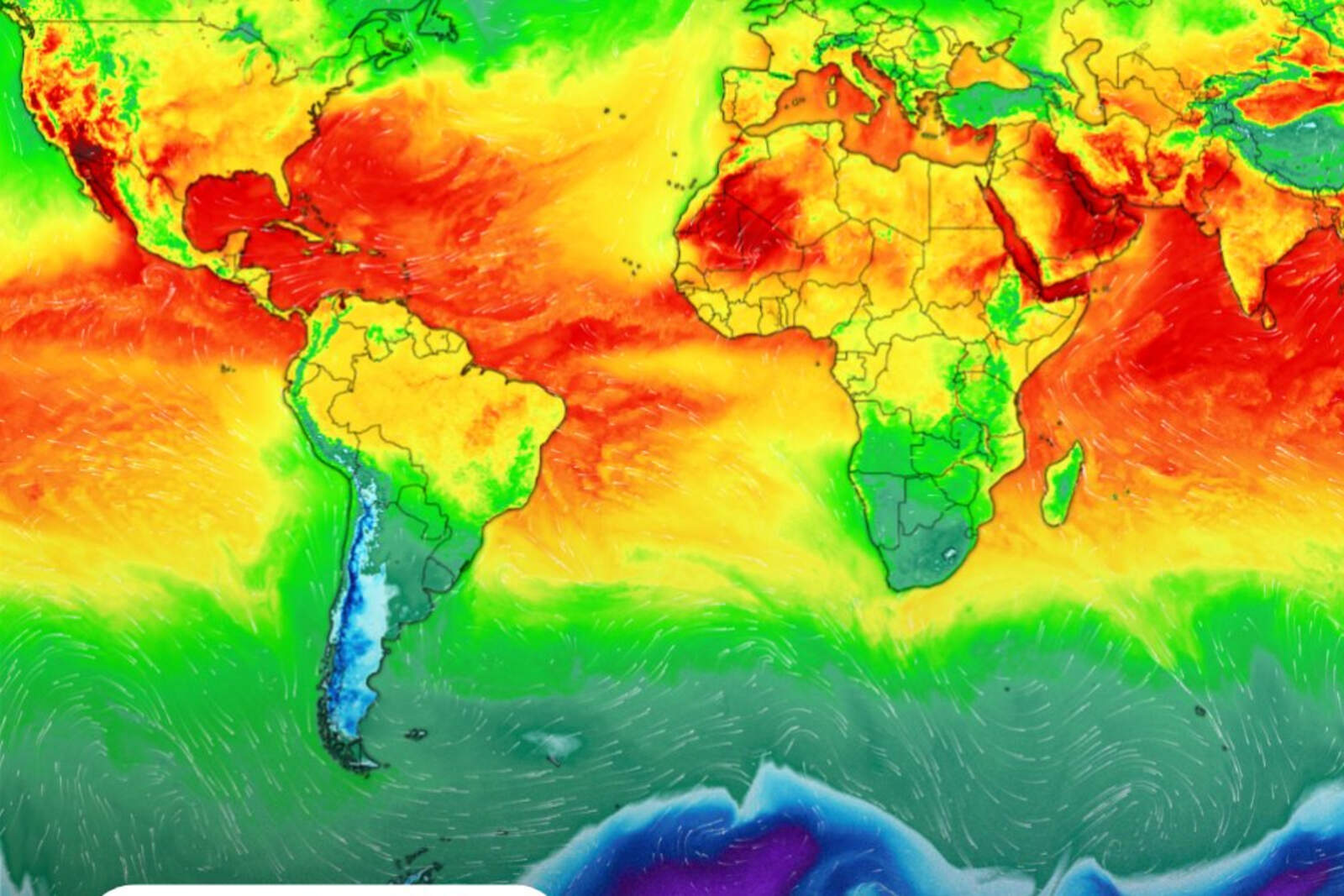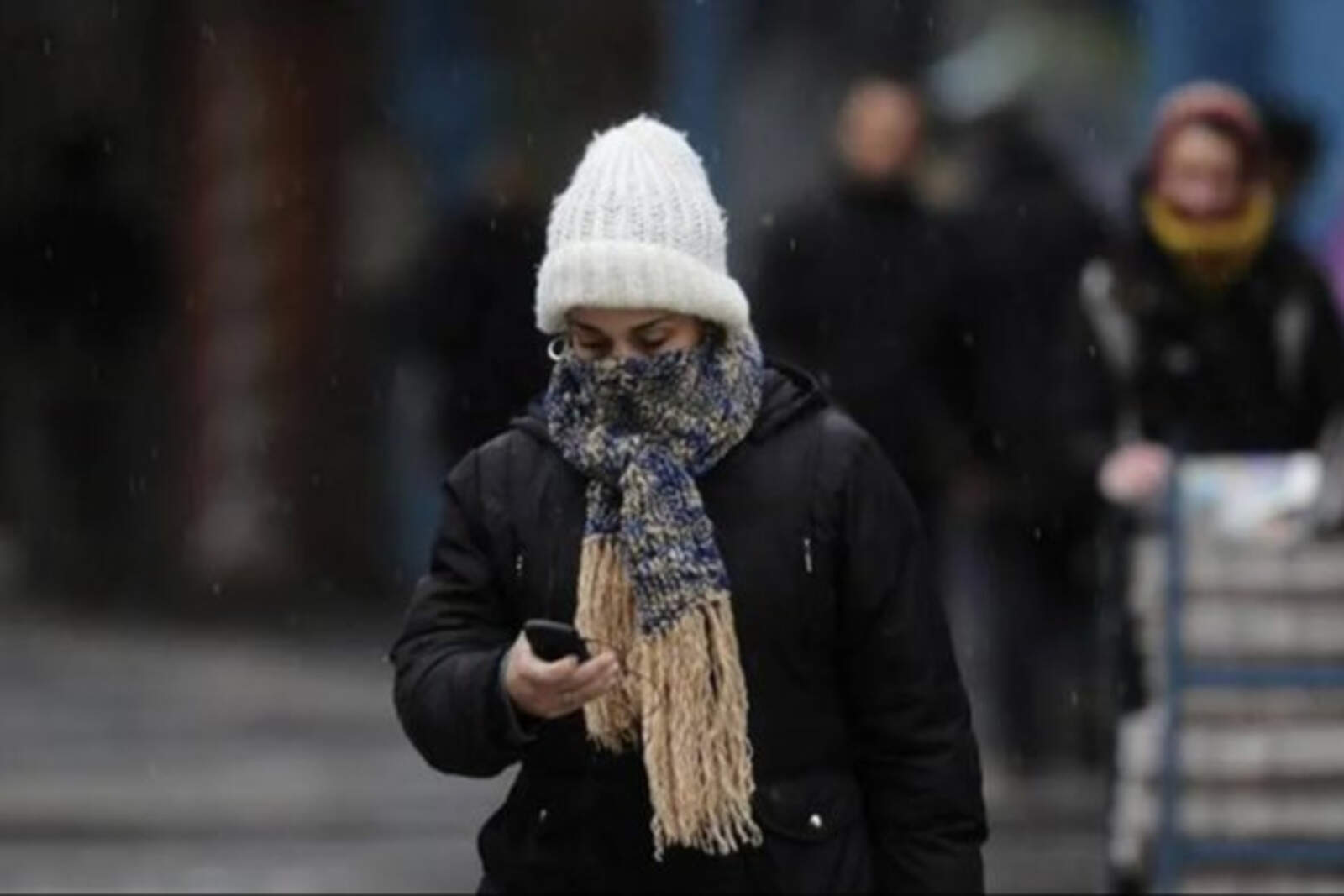Argentina is currently experiencing one of the most severe polar waves in recent times, with temperatures so low that the country has become the coldest on the planet.
The arrival of an extremely cold air mass from the south has covered almost the entire national territory, generating striking images and extreme temperature readings in provinces such as Salta, Mendoza, Córdoba, Buenos Aires, and much of the Patagonian region.
According to the National Meteorological Service (SMN), Argentina has led the global ranking of minimum temperatures over the past 48 hours. Among the locations that recorded the lowest values are Malargüe, in Mendoza, with -7.5°C; La Quiaca, in Jujuy, with -6°C; Bariloche, in Río Negro, with -5°C; and El Calafate, in Santa Cruz, with -4°C.

The phenomenon was not limited to the country's usually cold regions. It also extended to central and northern areas, where such events are uncommon. In Córdoba, widespread frosts and snowfall were reported in the Altas Cumbres; meanwhile, in the province of Buenos Aires, several towns in the interior woke up to frost and subzero temperatures. Even in parts of the Atlantic Coast, isolated snowfalls were recorded, a rare occurrence in that region.









